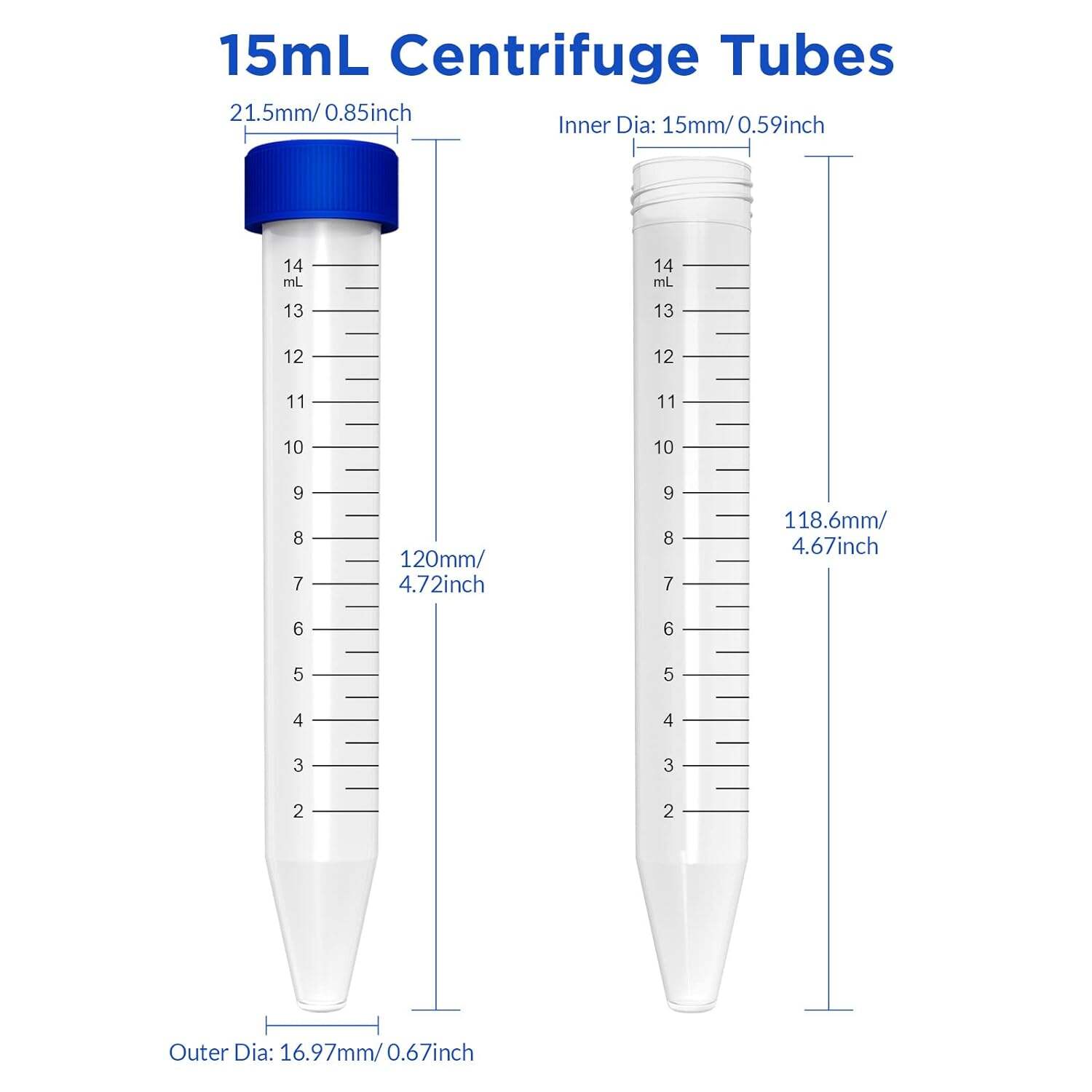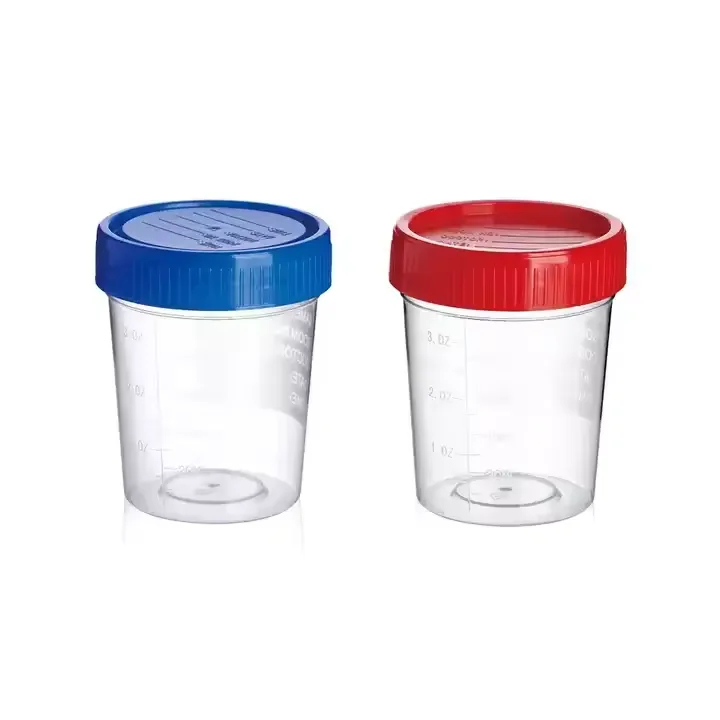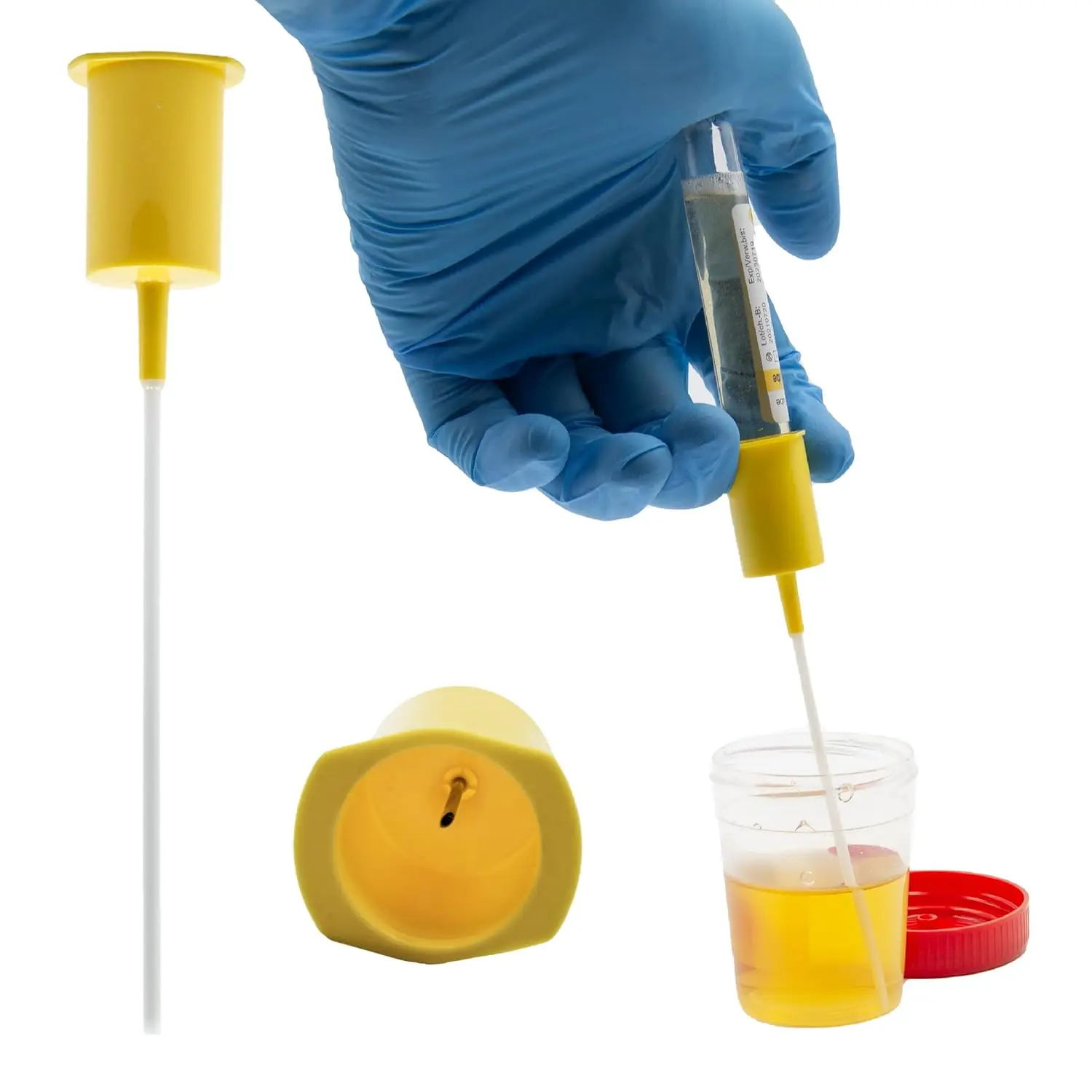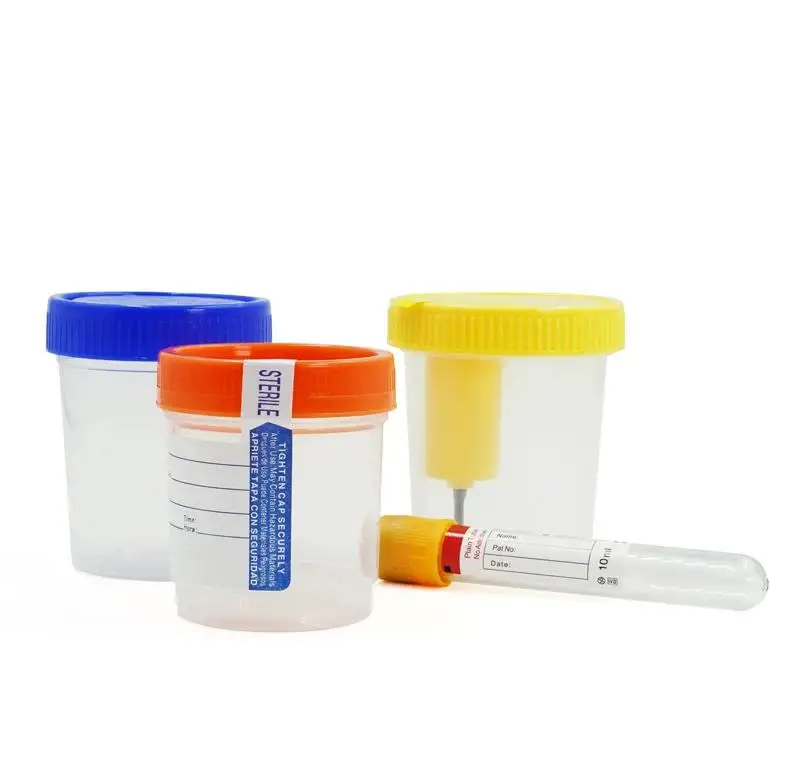-

Conical Bottom Centrifuge Tube Leak-Proof Seal Compatible with Automation Systems
-

Disposable Sterile Specimen Containers for Stool/Urine/Sputum Collection Medical-Grade Plastic Lab Containers Bulk Clinical Sample Containers
-

Disposable Sterile Urine Specimen Cups Transparent Medical Urinalysis Containers Factory Direct Bulk Lab Sample Cups
-

Sterile Urine Sample Cups, 40ml, Disposable & Leak-Proof PP Container for Clinical Lab Testing (Bulk Pack)
-

Dual-Use Sterile Specimen Container 40ml Urine Cup & Stool Collector Leak-Proof PP Material Bulk Wholesale
-

Disposable Vacuum Urine Specimen Cup PP Material Medical Collection Container OEM Customizable Lab Sample Cups
-

OEM Customizable Vacuum Urine Specimen Cup Sterile & Leak-Proof 40ml PP Container for Clinical Labs
-

Sterile Vacuum Urine Collection Cup Pre-Sealed Specimen Container for Medical Labs OEM Supplier
-

Vacuum Urine Collection Container with Needle PE/PP/PES Material Lab Specimen Cups Sterile Medical Sample Containers
Product Introduction
Laboratory products play a fundamental role in scientific research, experiments, and analyses across various fields. They are designed to assist researchers in conducting accurate and reliable investigations within laboratory settings. These products cover a wide range of items, including but not limited to laboratory glassware, such as beakers, flasks, and test tubes, which are used for containing, mixing, and heating substances. There are also precision instruments like microscopes, spectrometers, and balances that enable precise measurements and observations. Additionally, consumables like pipettes, tips, and filter papers are essential for sample handling and preparation. Laboratory products are the backbone of any laboratory, facilitating the smooth progress of experiments and contributing to the discovery of new knowledge and technological advancements.
II. Product Advantages
- Strict Quality Requirements
-
- Rigorous Manufacturing and Quality Checks
Laboratory products must meet stringent quality standards. The manufacturing process is closely monitored from start to finish. For laboratory glassware, only top-quality materials like borosilicate glass are selected due to its excellent thermal stability and chemical resistance. Precise molding and annealing techniques are employed to ensure uniformity in thickness and eliminate internal stress, preventing cracks or breakage under normal laboratory conditions. At each stage of production, strict quality checks are carried out. Any defective items are promptly identified and removed. For instance, during the production of pipettes, their accuracy in liquid dispensing is rigorously tested to ensure they meet the required precision standards.
-
- Stringent Regulatory Compliance
These products need to adhere to a wide array of international and national regulations. In biomedical research, laboratory products used for handling human samples must satisfy strict sterilization and biocompatibility requirements. For example, consumables that come into contact with biological specimens must be free of contaminants that could affect test results or pose risks to users. Precision instruments used in fields like pharmaceutical research follow Good Laboratory Practice (GLP) guidelines to ensure the accuracy and reproducibility of experimental data. This strict adherence to regulations guarantees the reliability and safety of laboratory products in diverse scientific applications.
- Advanced Technology
-
- Innovative Instrument Features and Capabilities
The technology integrated into laboratory products is constantly evolving, leading to remarkable improvements in instrument functionality. Modern microscopes, for example, are equipped with advanced imaging systems like aberration correction technology, which enables researchers to observe samples at a microscopic level with unprecedented clarity. This allows for detailed studies of cell structures, nanomaterials, and molecular interactions. Spectrometers have also seen significant advancements, with the incorporation of cutting-edge optical and electronic technologies that enhance their ability to detect and analyze trace amounts of substances with remarkable precision. Such technological innovations open up new avenues for research in fields like environmental science, materials analysis, and forensic science.
-
- Automation and Intelligent Integration Trends
Automation is increasingly becoming a key aspect of laboratory products. Automated liquid handling systems can precisely dispense liquids in micro-volumes with high speed and accuracy, reducing human errors and increasing the efficiency of sample preparation. These systems are often integrated with intelligent software that can manage multiple tasks simultaneously, optimizing the workflow in the laboratory. Similarly, laboratory incubators now come with built-in sensors and monitoring systems that can adjust environmental parameters such as temperature, humidity, and gas concentrations in real-time. This intelligent integration not only saves time for researchers but also ensures consistent and reliable experimental conditions, thereby enhancing the overall quality and efficiency of scientific research.
- Rich Product Variety
-
- Versatile Glassware for Different Purposes
Laboratory glassware offers a diverse range of options to meet various experimental needs. Volumetric glassware, including volumetric flasks and pipettes, is designed with high precision for accurate liquid volume measurements. They are calibrated to strict tolerances, ensuring the reliability of data in chemical analyses where precise amounts of reagents are crucial. Reaction vessels like round-bottom flasks and conical flasks, on the other hand, are engineered to withstand different chemical reactions under varying temperature and pressure conditions. Their thick walls and appropriate shapes facilitate efficient mixing and heat transfer, making them ideal for synthesis reactions in organic chemistry and other fields.
-
- Specialized Instruments across Multiple Disciplines
The variety of specialized instruments available caters to the specific requirements of different scientific disciplines. In the life sciences, there are advanced cell sorters that can separate different types of cells based on specific markers with high efficiency and purity. These are essential tools for cell biology research and medical diagnostics. In the physical sciences, high-precision lasers and optical benches are used for experiments related to light-matter interactions and quantum physics. In the field of materials science, scanning electron microscopes and X-ray diffractometers are indispensable for characterizing the microstructure and crystal structure of materials. This extensive range of instruments across disciplines empowers researchers to explore diverse aspects of their respective fields and make significant scientific breakthroughs.
- High Precision Requirements
-
- Precision in Measurement Instruments
Laboratory measurement instruments are known for their high precision. Electronic balances, for instance, can measure weights with extremely fine accuracy, sometimes down to micrograms or even nanograms. This level of precision is vital in fields like analytical chemistry, where trace amounts of substances need to be accurately quantified. pH meters are also calibrated to provide precise readings of the acidity or alkalinity of solutions, with a high level of resolution that enables researchers to detect even subtle changes in the chemical properties of samples. Such precision in measurement is crucial for obtaining accurate experimental results and drawing reliable conclusions.
-
- Accuracy in Sample Handling Tools
Sample handling tools also demand high precision. Pipettes are carefully calibrated to ensure the accurate transfer of liquid samples. They come in different volumes and designs to accommodate various experimental needs, from micropipettes for handling tiny volumes in molecular biology experiments to large-volume pipettes for bulk reagent transfers. Microtome blades used for cutting thin sections of biological or material samples are manufactured with extreme precision to produce sections of uniform thickness. The high accuracy of these sample handling tools guarantees that samples are prepared and manipulated in a consistent and precise manner, minimizing errors and variations in subsequent analyses.
III. Product Operation Manual
- Before Use
Before using laboratory products, it's essential to check their integrity. Examine laboratory glassware for any cracks or chips that could affect its performance. For precision instruments, make sure they are properly calibrated and all the components are in good working condition. Check the packaging of consumables like pipette tips to ensure they are sterile and undamaged. Familiarize yourself with the user manuals of Laboratory Products to understand their functions and operating principles.
- During Use
When using laboratory glassware, follow the correct procedures for filling, heating, and mixing substances. For example, when heating a beaker on a hot plate, use a proper heat-resistant mat and adjust the heat gradually. When operating precision instruments, input the correct parameters and follow the on-screen prompts. For instance, when using a spectrometer, set the appropriate wavelength range according to the sample being analyzed. When using consumables like pipettes, hold them correctly and ensure smooth and accurate liquid transfer. Always handle Laboratory Products with care to avoid any accidental damage.
- After Use
After using laboratory products, clean them properly. Wash laboratory glassware with appropriate detergents and rinse thoroughly to remove any residues. For precision instruments, follow the manufacturer's instructions for maintenance and storage. Some instruments may require regular calibration checks. Dispose of used consumables in accordance with laboratory waste disposal regulations. Store Laboratory Products in their designated places to keep them in good condition for future use.
IV. Contact Us for More Information
If you are interested in our Laboratory Products or have any questions regarding their features, applications, or operation methods, please don't hesitate to get in touch with us. You can leave your contact information through our official website or give us a call directly. Our professional team will be happy to provide you with detailed consultations and help you find the most suitable Laboratory Products for your specific laboratory needs. We look forward to hearing from you soon and assisting you in conducting successful scientific experiments.

